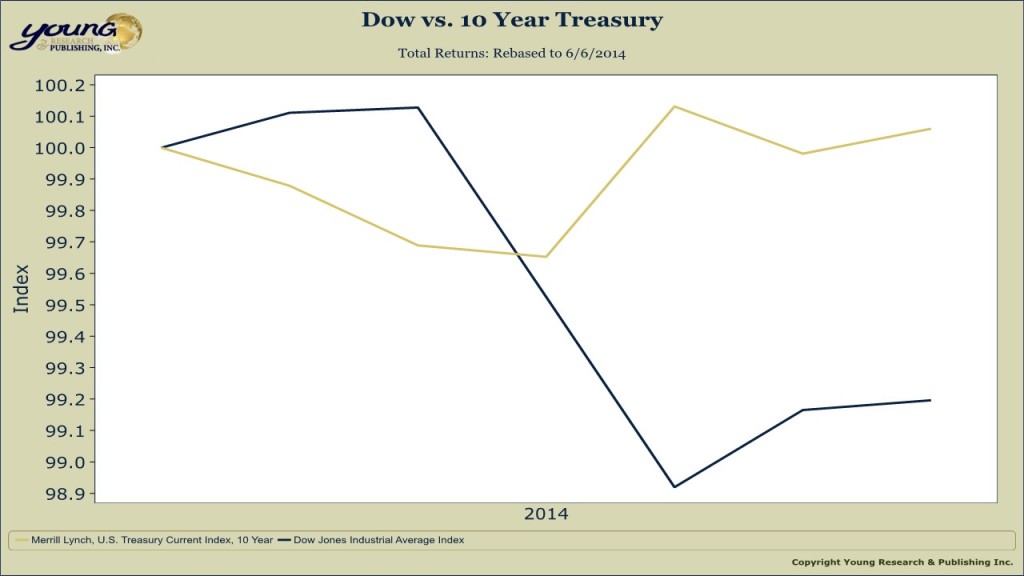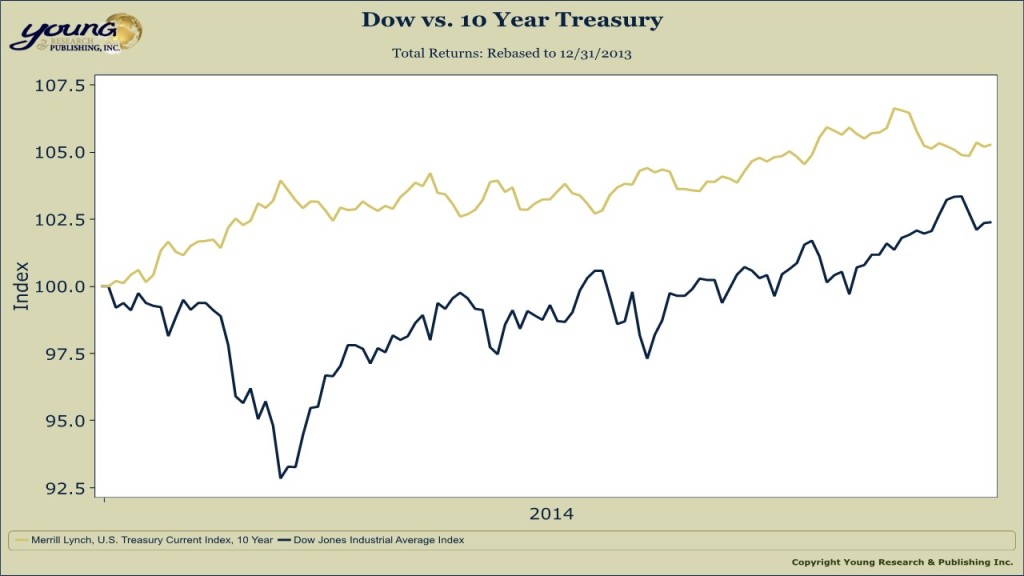|
|
 Sign up to get the letter emailed directly to you by clicking here!
Sign up to get the letter emailed directly to you by clicking here! |
|
 Wouldn’t we be in a better place if “Don’t Do Stupid Stuff” had been said by President George W. Bush? Not that President Obama has been right on Iraq/Afghanistan. “It’s true that Obama has never lived up to the cautious foreign policy maxim he’s coined: launching a destructive ‘dumb war’ in Libya, doubling down on Afghanistan with precious little to show for it,” writes Cato’s Gene Healy in his Washington Examiner piece. But what good have the Bush neocons done for foreign policy? Don’t do stupid stuff or DDSS would be a good place to start. Gene Healy says it best when he writes:
Wouldn’t we be in a better place if “Don’t Do Stupid Stuff” had been said by President George W. Bush? Not that President Obama has been right on Iraq/Afghanistan. “It’s true that Obama has never lived up to the cautious foreign policy maxim he’s coined: launching a destructive ‘dumb war’ in Libya, doubling down on Afghanistan with precious little to show for it,” writes Cato’s Gene Healy in his Washington Examiner piece. But what good have the Bush neocons done for foreign policy? Don’t do stupid stuff or DDSS would be a good place to start. Gene Healy says it best when he writes:
The United States paid a heavy price in pursuit of that dream: some 4,500 U.S. troops killed, tens of thousands more with traumatic brain injuries, hundreds of limb amputations, $1.7 trillion in direct budgetary costs so far and nearly half a trillion to come in veterans’ care and disability. Yet today, with Sunni jihadists pushing towards Baghdad, Iraq looks less like a Middle Eastern “City on a Hill” than a sectarian thugocracy, rapidly degenerating into a dystopian hellscape.
‘DDSS’ is a sound, even noble, foreign policy goal, one that can help us avoid further sacrifice of American blood and treasure — even as we try to extricate ourselves from past stupidities.”
Given that history, perhaps there’s something to be said for President Obama’s latest foreign-policy maxim: “don’t do stupid stuff.” At the very least, you wouldn’t think a “first, do no harm” approach to foreign policy would prove quite so controversial.
Yet “DDSS” has been greeted with contempt by the D.C. commentariat.
“How far we have come from the audacity of hope, yes we can” moans David Rothkopf, publisher of Foreign Policy magazine. “DDSS” just isn’t an “elevating notion,” he complains. (Neither, I suppose, is the Hippocratic Oath.) “A crude, meaningless phrase cannot substitute for statecraft,” sniffs former Bush aide Karl Rove in the Wall Street Journal.
Related video:

|
| >> read more |
|
If you have a dollar and lose $0.25 you’re left with $0.75. You’ve lost 25% of what you had, but to get back to $1.00, you’ll have to generate 33% of what you have now. To get it back you could go to work or you could hope the market helps you out. In real life when a husband and wife watch their portfolio go from $1 million to $750,000, they get out of the market. It’s too painful to watch. That tends to make their losses even worse because they lose the power of compounding. There’s a better way—it’s counterbalancing.
As you can see in the following charts, counterbalancing helps you win by not losing. Last week’s pull back in the stock market was a good week for 10-Year Treasuries. The same is true year-to-date 2014, and again it’s true going all the way back through the real estate crash to before the tech bust. Counterbalancing works. And I expect it to work during the next pull back. Discuss this with your spouse and develop a plan for counterbalancing your portfolio because often these discussions take place only after it’s too late.
 

|
| >> read more |

America should have stayed out of WWI and instead practiced a strategy of armed neutrality. Here Cato Institute’s Jim Powell thoughtfully lays out the historical disaster of Woodrow Wilson’s WWI intervention policy, which straight lined directly into WWII. Armed neutrality should have been America’s central foreign policy then as it should be today.
I would like a presidential candidate who runs against the Democrats in 2016 to run on a policy of armed neutrality, non-intervention, a 10/10/10 flat tax, repeal of Obamacare, the shuttering of the Fed, privatizing homeland security, removal of U.S.troops from foreign soil, an end to most foreign aid, an end to class action lawsuits and punitive damages, strict single term limits, a nationwide castle doctrine, a broad-based movement to small central government and an expanded localized states rights system as practiced in Switzerland. Our Constitution called for a weak presidency with few and directly enumerated powers. America must return to the constitutional way. And by no-means is that the end of the necessary reforms. America needs to move away from the two-party system, which unlike the European way, stifles debate and challenges to incumbents. I wonder how many Americans know that the American Constitution never intended a standing Army!
Powell writes:
World War I was probably history’s worst catastrophe, and U.S. President Woodrow Wilson was substantially responsible for unintended consequences of the war that played out in Germany and Russia, contributing to the rise of totalitarian regimes and another world war. American “isolationism” — armed neutrality would be a more accurate term — developed as a sensible reaction to his policies. After Germany’s initial advances into the Low Countries and France, the adversaries in World War I dug trenches and seldom advanced or retreated much from those lines.
German soldiers were generally outnumbered on the Western Front, but the Germans had smarter generals and more guns. The British navy enforced an effective blockade that made it difficult for the Germans to obtain many vital supplies, including food. Germany responded by building a submarine fleet, but it didn’t give them a way to invade Britain or the United States. By 1918, the war had been stalemated for more than three years, neither side able to force vindictive terms on the other. One of the last German offensives ground to a halt in the French countryside when German commanders couldn’t prevent their starving soldiers, amazed by the abundance of food, from gorging themselves on cheeses, sausages, and wine.
If the U.S. had stayed out of the war, it seems likely there would have been some kind of negotiated settlement. Neither the Allied Powers (France, Britain, Russia, Italy, Japan, and several smaller states) nor the Central Powers (Germany, Austria-Hungary, the Ottoman Empire, and Bulgaria) would have gained everything they wanted from a negotiated settlement. Both sides would have complained. But a catastrophe would have been less likely after a negotiated settlement than after vindictive terms were forced on the losers.
|
| >> read more |

Ben S. Carson, professor emeritus of neurosurgery at Johns Hopkins University, writes in the Washington Times about the tough issue of immigration reform in light of the mass dumping of thousands of illegal children from south of the border into the United States. We are facing a humanitarian crisis that seems to have been manufactured for political benefits.
In 2012, the current administration made it clear that certain unaccompanied illegal minors would not be deported if caught. This helped create an atmosphere of tolerance that would be conducive to the current rash of illegal dumping of thousands of children from south of the border into the United States. Now we have a humanitarian crisis that appears to have been manufactured for political reasons.
One would not have to be incredibly bright to predict that families in South and Central America, as well as in Mexico, would recognize a veiled invitation to get their children into the United States with little chance of deportation. Of course, the media are asking opponents of the administration for solutions to this crisis. Almost anything these opponents suggest will be either harsh, making them appear cruel and callous, or weak, making them appear to be amnesty supporters. Either way, they will take a political hit. Meanwhile, the administration can stay above the fray and receive the political benefit of gratitude from many legal and illegal immigrants. It’s a clever and effective ploy with the added benefit of redistributing even more American wealth. It remains to be seen how many people will be hoodwinked.
|
| >> read more |
|
 I know my first job wasn’t an internship. I scooped ice cream at my first job. Working for minimum wage and waiting on the public is an education I’ll never forget. I know my first job wasn’t an internship. I scooped ice cream at my first job. Working for minimum wage and waiting on the public is an education I’ll never forget.
It wasn’t until I was at Babson College that I even considered an internship. The idea of working for free never crossed my mind. But the value of being an intern is in gaining experience in your chosen field of study.
Lucky me I happened to work at a start-up internet company and I actually did get paid, a little. I mean a little. But I certainly wasn’t in it for the money. If that was my goal I would have done something in my hometown of Mattapoisett on Buzzards Bay rather than work in the hot suburbs of Boston. But I wouldn’t trade my experience for the world. Internships are valuable regardless of pay and I agree 100% with John Stossel here:
John Stossel writing at reason.com, June 4:
I’ve had hundreds of employees whom I paid nothing: student interns. Unpaid internships were allowed for years, because it was understood that interns learn by working. My interns learned a lot. Many went on to successful careers in journalism. One won a Pulitzer Prize. Many said they learned more working for me than at college (despite $50,000 tuition). They benefited and I benefited. Win-win.
So for years government ignored Labor Department rules that decreed unpaid internships legal only if an employer gets “no immediate advantage” from the intern. Geez, who wants that? Of course I got an advantage from my interns. That’s why I employed them!
Recently, President Barack Obama’s Labor Department announced it would enforce the internship rules, and some interns sued their former employers, claiming internships were “unfair.” Charlie Rose forked over a quarter of a million dollars. Word spread, so now unpaid internships are vanishing.
Some people say it’s good that unpaid internships are gone, because they are unfair to poor people, who can’t afford volunteer work. But getting rid of opportunities does nothing to help anyone. Employers lose and students lose.
Difficult as it can seem to make your own way in this world without a phony government promise that you’ll be taken care of, or that every job will pay at least $15 an hour, success happens when markets are relatively free. Individual initiative creates new things, companies, job opportunities—whole new ways of life—that make the world better for all of us.
Related video:

|
| >> read more |
|
 Working for the government is not like working for the private sector, says Jonah Goldberg, editor-at-large of National Review Online. Unlike the private sector, where people lose their jobs for incompetence, redundancy or obsolescence, government employees essentially cannot be fired. Worse yet, as veterans seeking medical care waited and waited until some even died, VA employees were paid out $10 million in bonuses over the last three years.
Working for the government is not like working for the private sector, says Jonah Goldberg, editor-at-large of National Review Online. Unlike the private sector, where people lose their jobs for incompetence, redundancy or obsolescence, government employees essentially cannot be fired. Worse yet, as veterans seeking medical care waited and waited until some even died, VA employees were paid out $10 million in bonuses over the last three years.
And what will the consequences be to the bloated, criminally negligent, union-strong VA employees? Probably nothing. As Jonah notes from a USA Today article, “Death — rather than poor performance, misconduct or layoffs — is the primary threat to job security at the Environmental Protection Agency, the Small Business Administration, the Department of Housing and Urban Development, the Office of Management and Budget and a dozen other federal operations.” Missing at the top of this sorry list is the sordid mess at Veterans Affairs.
The Veterans Affairs scandal can be boiled down to the fact that VA employees are the agency’s most important constituency. The Phoenix VA health-care system created secret waiting lists where patients languished and even died, while the administrator paid out almost $10 million in bonuses to VA employees over the last three years.
Working for the federal government simply isn’t like working for the private sector. Government employees are essentially unfireable. In the private sector, people lose their jobs for incompetence, redundancy, or obsolescence all the time. In government, these concepts are virtually meaningless. From a 2011 USA Todayarticle: “Death — rather than poor performance, misconduct or layoffs — is the primary threat to job security at the Environmental Protection Agency, the Small Business Administration, the Department of Housing and Urban Development, the Office of Management and Budget and a dozen other federal operations.”
In 2010, the 168,000 federal workers in Washington, D.C. — who are quite well compensated — had a job-security rate of 99.74 percent. A HUD spokesman toldUSA Today that “his department’s low dismissal rate — providing a 99.85 percent job security rate for employees — shows a skilled and committed workforce.”
Uh huh.
|
| >> read more |
|
 My friend, Cato Institute’s Chris Preble, wins the gold metal for his cogent analysis of America’s foreign policy as conducted by both major parties. My friend, Cato Institute’s Chris Preble, wins the gold metal for his cogent analysis of America’s foreign policy as conducted by both major parties.
Consider the top 10 contenders for the GOP nomination according to an April 2014 FoxNews poll. Only two — Paul Ryan and Rick Santorum — were in Congress in 2002. Both voted for the Iraq resolution, and neither has declared that he made a mistake.
Marco Rubio, who entered the Senate in 2011, has consistently sided with the most hawkish faction in that chamber, and, true to form, is calling for U.S. military action in Iraq right now. Jeb Bush has an unfortunate last name.
Rick Perry was busy being governor of Texas in 2002, and Ted Cruz was still a relative unknown, but neither has distanced himself from his fellow Texan’s war. Perry proposed sending troops back into Iraq in 2012, and Ted Cruz scored points with hawks for his attack on Chuck Hagel. Among Hagel’s sins? Opposing the Iraq war (after Hagel had voted for it).
Not quite a year ago, before the Bridgegate scandal broke, Chris Christie warned of the “dangerous” “strain of libertarianism” running in the GOP, by which he meant Rand Paul, the only serious Republican contender who has stated categorically that the Iraq war was a mistake.
Scott Walker and Bobby Jindal would probably rather not talk about foreign policy at all (and who can blame them?), but they eventually will be asked about Iraq if they run for president.
The public’s approval of Barack Obama’s foreign policy continues to decline, but it’s obvious why the GOP’s star isn’t rising. Obama’s unofficial mantra “don’t do stupid [stuff],” so ripe for ridicule by the pro-war faction, looks preferable to the alternative: “we do stupid stuff, and we’re proud of it!”
With that slogan, Republicans will have a hard time convincing the American people to trust them with the keys to the nation’s foreign policy.
Related video:

|
| >> read more |
|
Here is iron-clad reasoning on the hash our foreign policy has made in Iraq. Cato Institute’s Ben Friedman has this wired!
Today, we are repeatedly told that ISIS is more brutal than al Qaeda and thus a bigger danger to Americans. But that logic confuses an insurgency with a group focused on attacking Americans. ISIS is a nasty organization fond of terrorist violence, radical Islam, and Islamic caliphates, but not an obvious threat to Americans. Conflating morally noxious Islamists with those bent on killing Americans is one of the errors keeping us at endless war.
A second reason to stay out of Iraq’s turmoil is its increasingly sectarian nature. President Obama today repeated the claim that we building a multiethnic military in Iraq. But, as Barry Posen pointed out at Cato yesterday (1:02 here), that has been revealed as a sham, just like the claims made over the years by our political and military leaders that we were making progress toward building an effective Iraqi military. The effective part of Iraqi military that can hold Baghdad, we hope, is its Shiite core. The reality is that we’re talking about protecting a Shiite regime against Sunni rebels, not restoring a multiethnic state.
And the sectarian conflict is not confined to Iraq. Iran’s government said yesterday that it had dispatched Revolutionary Guards units to Iraq to fight ISIS. That’s because Iraq is governed by a Nouri al-Maliki’s Shiite regime and because ISIS is already troubling Iran’s major state ally across the border in Syria. So what the President is really considering is joining those three regimes in their fights against Sunni rebellions. Why should we do that? What is victory in that fight worth to Americans?
The third reason to stay out is that we know how hard getting out is. Bombing ISIS on behalf of the Iraqi government may not change the balance of power in Iraq very much. If we again prop up a weak government, we may simply delay the day when Iraq develops a political system that matches its domestic balance of power. That seems likely to be a long, violent process that our participation may only delay.
|
| >> read more | |
|
|
|
|
|
|